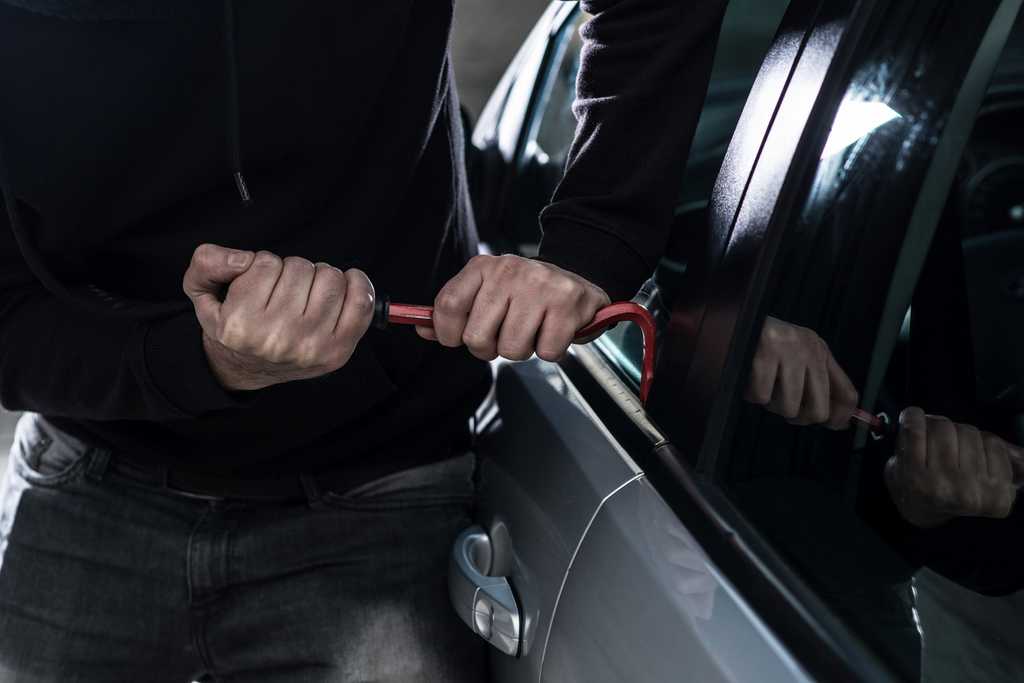When you’re buying car insurance, planning for the possibility it might be stolen should be a concern. After all, car theft has been increasing as part of a years-long trend, so adding coverage for theft is a smart idea.
While car insurance does cover instances of theft, what insurance pays for will depend on the type of coverage.
What kind of car insurance covers car theft?
If you have comprehensive coverage with your policy, then your car insurance will cover a stolen car. More specifically, you’ll be covered for damages to your car due to an attempted break-in, or if your car has completely disappeared.
In most cases, you’ll be paid up to the actual cash value, or ACV of your car, after paying your deductible.
The ACV of a vehicle is the amount your car is currently valued at, and not necessarily the amount you paid for when you initially purchased the vehicle. In other words, the ACV considers the depreciation of your car, or a fair amount you could get if you were to sell your car right now.
For damages to your car, you’ll be covered for repairs. You could even be covered for damaged or stolen car keys, as well as if your catalytic converter is stolen, assuming they’re part of the theft.
Two other types of insurance that covers stolen vehicles include:
- Gap insurance: This type of coverage will pay the difference between the amount you have left on your auto loan and the car’s value in the event it’s stolen.
- New car replacement coverage: your insurer will pay to replace your vehicle within the first few years after purchase if it’s stolen or totaled.
What to do when your car is stolen
You need to call the police and file a report as soon as you notice your vehicle is stolen. Some details you’ll need to provide police include the make and model of your car, the vehicle identification number (VIN), and your license plate number. Be sure you keep this information outside of your car, because if you only have it in the glove compartment, you won’t have access to it if the car is missing.
Afterwards, contact your insurance company to see whether you’re covered and file a claim. You may also want to contact your homeowners or renters insurance to see whether you may be covered for the personal belongings that were inside your stolen car.
The faster you can file a police report and contact your insurers, the more efficiently your claims can be processed — ideally the police may be able to find your car.
If your insurance company approves your claim, most will use the ACV of your car to determine the payout amount, though it’ll depend largely on your policy terms. Once you’ve agreed to the amount the insurance adjuster has set, you’ll be paid the amount, minus your deductible.
How much will my stolen car payout be?
Comprehensive insurance policies typically cover up to your car’s actual cash value, after subtracting your deductible. An adjuster will determine the amount you’ll be compensated. If your car ends up being found and the repair costs are less than the ACV, you’ll be paid that amount to cover repairs.
Several factors the adjuster will come up with to determine the current value of your car includes your car’s:
- Make and model
- Age
- Accident history
- Wholesale price
- Car’s core fixtures, like upgrades
- Kelly Blue Book value
Remember, ancillary items — items that you can remove from the car — like music players that can be plugged in aren’t covered by comprehensive insurance. You may be able to claim that through your homeowners and renters insurance.
The adjuster’s job is to offer you a fair value for your car, though it could be on the lower end. Once you file a claim, you’ll want to do your own research and compare to see whether you’re getting a good offer — you may be able to negotiate the payout, up to your policy limit if you can provide convincing proof. Some places to look include Edmunds, Kelley Blue Book, and the National Automobile Dealers Association (NADA).
When doing your own research, include information your insurance company would use such as your car’s mileage, accident history, and look at dealership reports to see how similar vehicles to yours have been selling.
Does car insurance cover theft of personal items
As stated above, car insurance doesn’t cover the theft of your personal items because comprehensive insurance will only cover items that are permanently installed in your vehicle.
The good news is that your homeowners or renters insurance policy might cover personal belongings inside your car when it was stolen. You would need to make a separate claim for your belongings though your homeowners or renters insurance and your stolen vehicle through your auto insurance.
Does car insurance cover vandalism?
Your comprehensive car insurance policy should provide coverage against vandalism to your car.
Just like a stolen car, first file a police report for the vandalism, then contact your insurance company to determine whether you’re covered and to file a claim.
In the meantime, make sure to take photos to document the vandalism to keep on file and in case an adjuster may need them. You’ll also want to list any items that were stolen in case you need to file a claim with your homeowners or renters insurance.
Though taking proper precautions may not always prevent your car from being stolen, you can ensure you have the right coverage to ensure you’re covered in case it does happen.

